
Now her brooches are owned by Ukrainian women who currently live in Poland, Spain, Ireland, Germany, Canada, and Ukraine. Read about the first Berehynia, Natalya's dream, and the support of the man who gave his life in Irpin in Rubryka's text.
"Danyu, I think I forgot how to use a weapon…"
In the family of Natalya Budyonna and Dmytro Sergeyev, preparations were made in advance of a full-scale war. We bought food, a gas burner, first aid kits, and other essentials.
In the fall of 2021, Dmytro Sergeyev was already training with the backbone of his battalion. His wife, Natalya, recalls that her husband's decision to receive an officer's rank was considered. He did not acquire a military specialty in university, so he aspired to get it as an adult. By February 24, Dmytro managed to sign a contract with the Territorial Defense of Kyiv Region.
"He barely talked me into it. He said: "I will choose such a specialty that I will not be in advanced positions." He was calming me down," Natalya Budyonna recounts her husband's words.
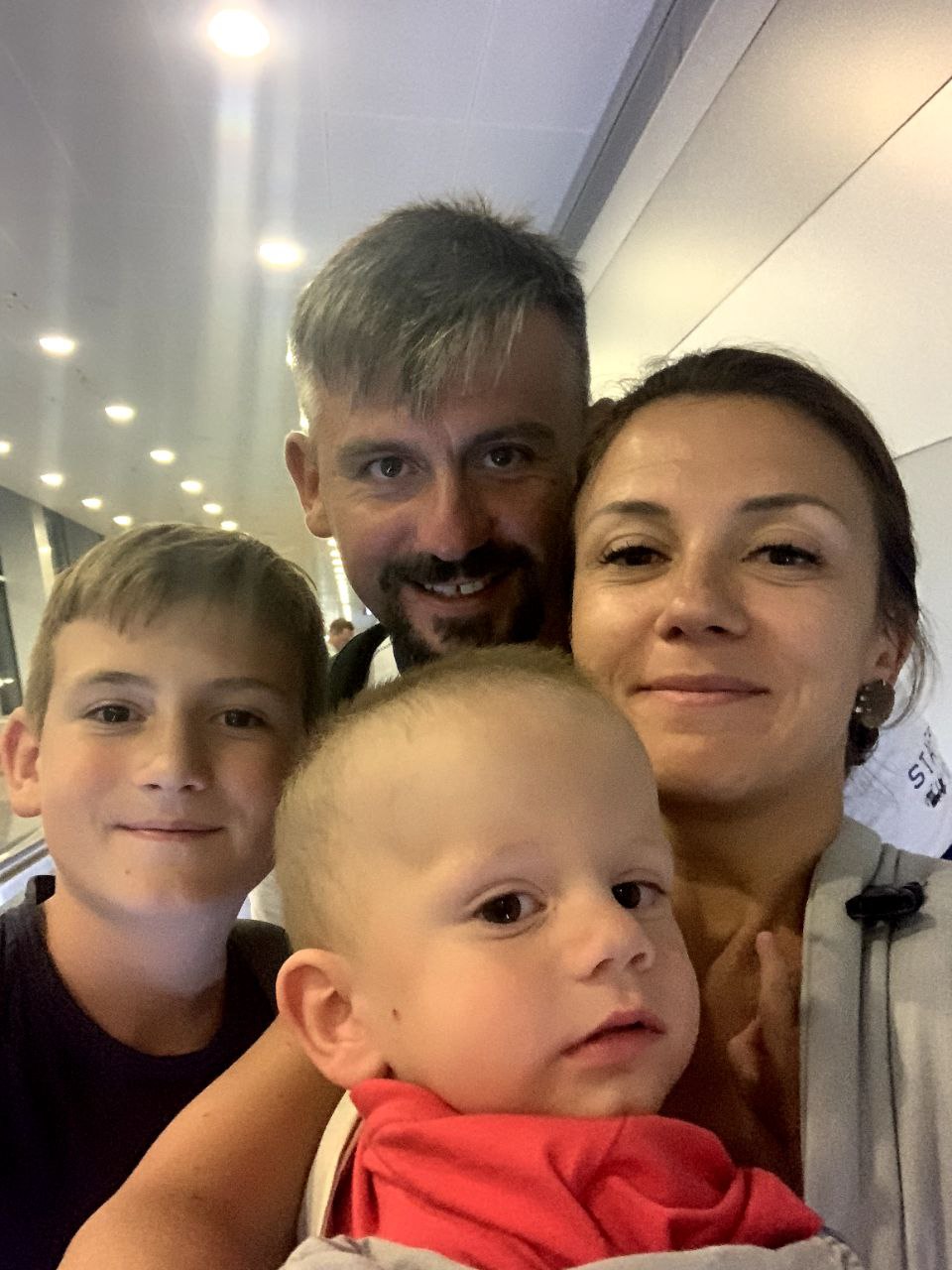
Later, the wife asked:
– Where were you enrolled?
– I'm in the infantry…
– Are you mocking me?
– Don't worry; if there is a war, it will be an artillery war. There will be almost no infantry there.
The couple kept the fact that Dmytro earned an officer's rank a secret from their parents for a long time. The couple didn't want them to be nervous.
In February, the family with sons Danya and Roma and Natalya's mother moved from Kyiv to the Obukhivskyi district. They wanted to rest a little there. The house owners — friends of the family — lived abroad. Just in case, Dmytro, who loved hunting, took a weapon and permits for it with him.
On February 24, the house where the family stayed was shaking all the time. A stationary anti-aircraft fire station was operating one and a half kilometers away. Its work was visible and audible, Natalya recalls. Then everything was like "in accelerated shooting with a feeling of cinematic surrealism."
Dmytro immediately packed up and went to Kyiv to his military unit — since then, he has not seen his family. The family stayed in the Obukhiv district. Natalya, with her mother and sons, constantly heard explosions. Kyiv was 15 kilometers from the house, Vasylkiv was 16 kilometers away, and Obukhiv was a little less. Shelling and explosions were heard everywhere. The only conditionally safe island where nothing "arrived" was the settlement where the family was. When it seemed that they were about to be hit, Natalya despaired.
"Danyu, I think I forgot how to use a weapon."
"Don't worry, I'll show you everything," answered 14-year-old Danya.
A few movements and the gun was ready for use. Dad taught his eldest son to disassemble, assemble and shoot different types of weapons. In the most terrible moments for the mother, Danya became her support. "He behaved like a responsible man," Natalya recalls.
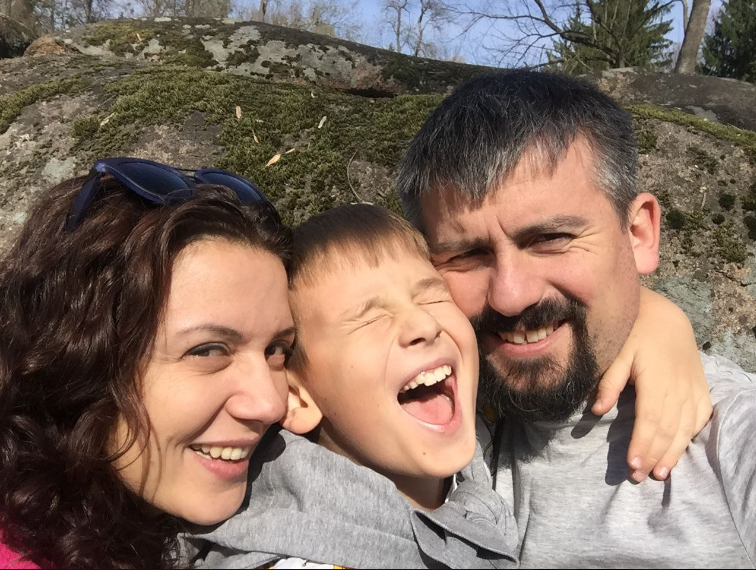
The family did not travel from the Obukhiv district, but Natalya thought they would be taken into the ring shortly. I wanted to leave the Kyiv region, but my beloved man remained in the capital. After several days of hesitation and constant worries about Dmytro, the family did leave for Yaremche. Fear for the children prevailed.
"Everything that worried us before became irrelevant": the death of Dmytro Sergeyev
After February 24, Natalya was afraid to call her husband. She was warned that the enemy could tap the conversation. The woman asked where Dmytro was and what he was doing. If he did not answer specifically, I did not give any details.
"I was afraid that I could cause trouble with my questions. This time was very difficult for our soldiers," says Natalya.
In one of the first conversations, Dmytro, already being a platoon commander, said: "You can't imagine… Everything that worried us before became irrelevant." The man could only take a shower in the second week and took off his boots after a few days. Exhausted, he simply fell asleep in them, and when he took them off, he could not put them back on his tired and sore legs. That's why he changed into sneakers.
"The schedule is so busy that the guys don't have time to change their shoes. On the third or fourth day of constant wearing, the legs are in terrible condition. And such a case as my Dmytro's is not the only one," says his wife.
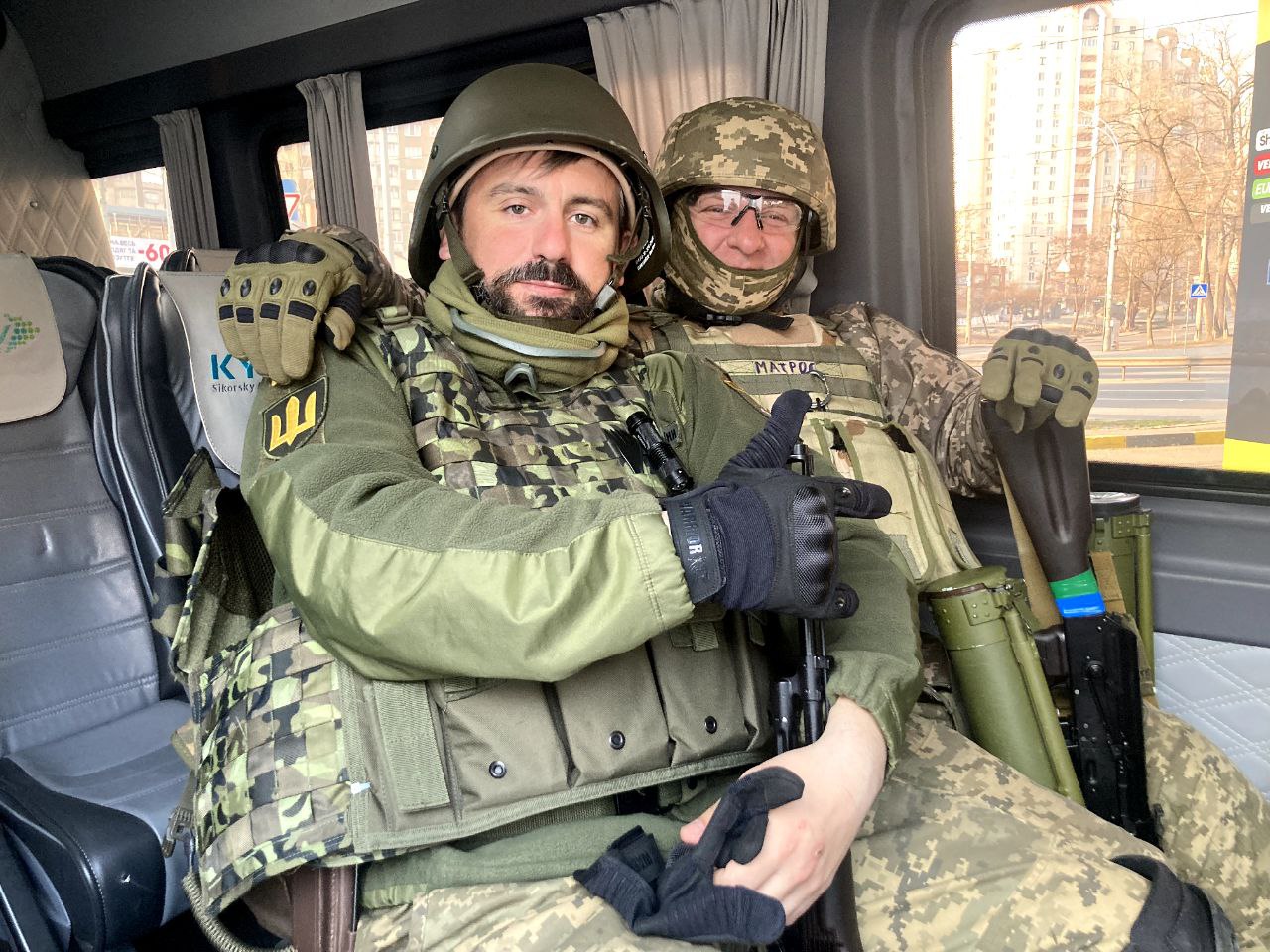
In mid-March, Dmytro told Natalya that he was going on a combat mission, so he might not be in touch. The reception was bad at the place where they were transferred.
"I will find places where there is at least one antenna. If I don't call, know that I'm fine. There is simply no reception."
Only after the husband left for the task did Natalya look at the husband's geolocation. Dmytro and his comrades were transferred to Irpin.
On March 23, an enemy tank group — a tank, an armored personnel carrier, and other military vehicles accompanied by infantry — moved to the position where the platoon was standing.
Dmytro had to work on a grenade launcher. During reloading, a tree overhanging the position was hit by tank ammunition. A huge willow crushed Dmytro, crushing the man's leg and damaging the main vessels of the body. Dmytro Sergeyev still shot back for half an hour and fired the entire set of cartridges at the enemy. But at the same time, he was bleeding.
As soon as it became quieter, the comrades rushed to help. To lift the willow under which the defender was, it was necessary to use a road sign as a lever. The wounded commander was taken out from under the tree and transferred to an evacuation vehicle. But the blood loss was too great. In a few minutes, the commander of the 130th platoon of the 112th brigade of the Territorial Defense Forces of the Armed Forces of Ukraine, Dmytro Sergeyev, died.
However, the russian armored group did not pass to Irpin, could not connect with other enemy forces, and develop an offensive. Dmytro's platoon completed its combat mission.
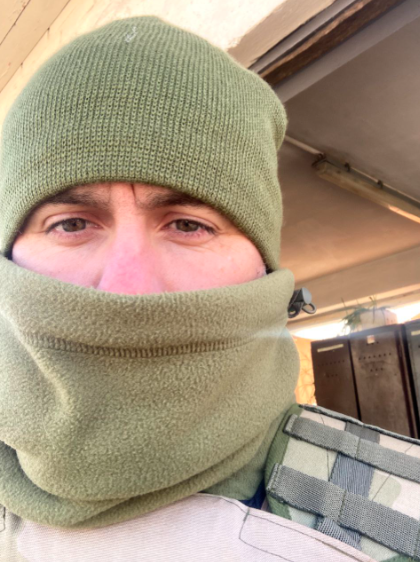
The Call
Dmytro advised Natalya not to pick up the phone from unfamiliar numbers. On March 24, the woman's phone buzzed; the numbers were unfamiliar. For some reason, she decided to answer.
— Natalya Oleksandrivna Budyonna?
— Yes.
Natalya remembers that the unfamiliar male voice was shaking. The person on the other end of the phone had difficulty speaking.
— Your husband Sergeyev Dmytro Ivanovych died in Irpin.
Natalya thought that scammers were calling because Dmytro's paternal name was Ihorovych, not Ivanovych. In Kyiv, the family's apartment remained empty, and thieves could be interested in it. "This man asked: 'Are you at home?' I thought that he was checking to make sure," says Natalya.
"Thank you," Natalya hung up the phone. The first thought was to check everything.
The woman found the phone of the military unit, but they could not help there. They have not yet received the latest information on the losses.
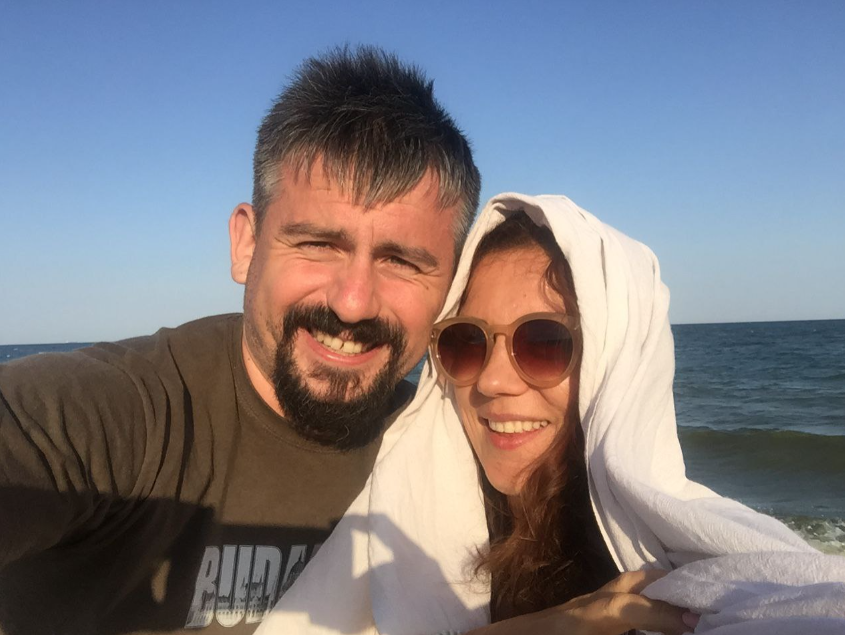
Natalya called her elderly neighbor, who was the only one on their floor.
"Has anyone come to us?"
"Yes, someone has, but I'm afraid of everything, so I didn't open the door," the old woman answered.
Natalya called her other neighbor, who was taking care of the house.
"Andriy, I got a call… I don't know if it's true."
He was silent. A moment, two.
"He really was a military man; he had all the documents with him. I took the notice of Dmytro's death for you. It's true. Please accept my condolences."
But Natalya still did not believe. Dmytro's best friend, who was in the same battalion with him, was the last she called.
"I was told that Dmytro had died."
Silence.
"Yura, don't be silent."
But the man only breathed heavily into the receiver. Then Natalya screamed at him, for the first time in her life: "I screamed so much…" He said only one word:
"Yes."
Natalya hung up the phone.
Despite her confusion, she understood: she should go to Kyiv to bury her husband.
"Then there was such a situation in the capital that you don't know if you will return to your children. To take them with you was also to expose them to danger. Which would completely negate what my husband and their father died for. It was a difficult decision, but I went alone."
In the morning, the woman went to Kyiv together with a family friend. She had to identify the man in the morgue.
"When Dmytro died, he was still Sergeyev Dmytro Ihorovych, and when the body was brought to the morgue, he became an unknown soldier. Someone needed to recognize him. I really didn't want his parents to do that. The news about the death of their son was enough for them."
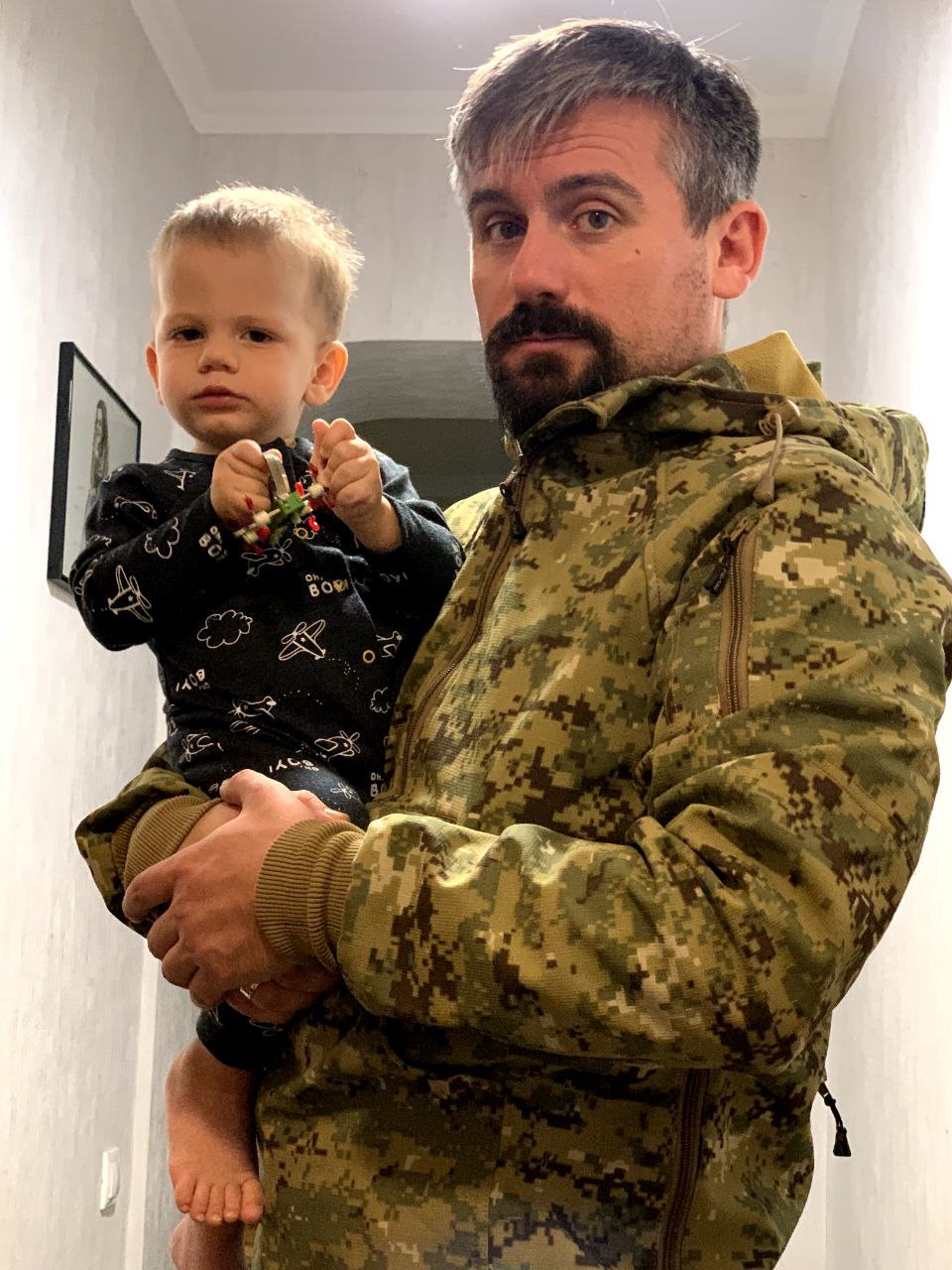
In February, when Natalya left, Kyiv was peaceful and quiet. And after a month, the hometown was unrecognizable. The streets are dug up, soldiers are everywhere, and familiar houses are destroyed. The woman stayed in the capital as long as the burial required. Half an hour after saying goodbye, she was already returning to the children in Yaremche.
The cause, that saves
After Dmytro's death, the family stayed in Ukraine for several more weeks. Then they decided to go abroad.
"My husband was the only thing that kept us in Ukraine. Not physically, but it was hard for me to part with him. When he was gone, there was one less hook," says Nataliya.
And the children needed a change of scenery. After his father's death, Danya, the eldest son, could not go outside without fear. The boy did not feel safe in the open area, and he constantly thought that missiles were flying.
The family did not want to go far, so the choice fell on Bulgaria. Natalya took a small package with her — a set for creating jewelry.
"When it was especially difficult in the first weeks after February 24, Dmytro would say: "You took to your jewelry kit. Stop reading the news. Work a little." All my life, I aspired to some kind of creativity. Dmytro said that if I don't create, I lose myself. There was a period when I worked in a studio, engaged in decoupage. And a few years ago, I attended an embroidery master class, where I realized that embroidery is not boring."
About a week after Dmytro's death, Natalya was looking at pictures with Ukrainian motifs saved on Pinterest. The gaze was caught by the works of the artist of Ukrainian motanka. This deeply affected Natalya's soul. She imagined how a brooch in a similar style would look like. She tried to draw and then embroider the resulting picture. This is how the first Berehynia was born.
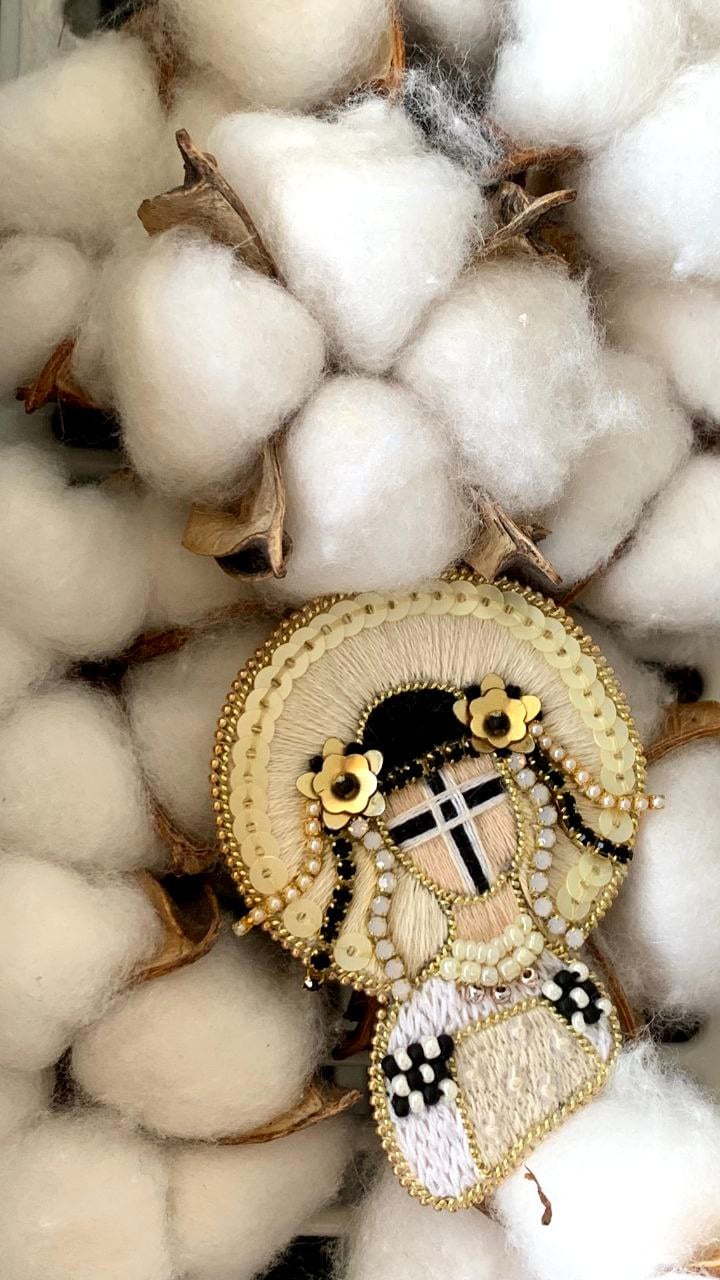
Currently, there are already six different images with different meanings. With a flower in the hands — it protects the harvest and the land. With a house — takes care of the house. In a scarf and a hat — it stands in defense of the family. With an egg — symbolizes the continuation of the family. Sea, river, and lake shores are in blue colors. And Berehynia with fluttering ribbons personifies youth and femininity.
The craftswoman plans to create a Berehynia with historical roots, symbolizing the connection with ancestors. The images of Mavka and the Mermaid also attract Natalya.
Ukrainian women liked bright brooches. A large electronic queue lined up behind them. The girls are ready to wait for several months (now the nearest chance for ready-made Berehynia is as far as February).
"Our market is oversaturated with products in blue and yellow colors. I wanted to make Ukrainian jewelry, the meaning of which can be read from the image," Natalya explains the success of her Berehynia.

Initially, the woman planned to give a fifth of the money received from jewelry sales to the Armed Forces, organizations that care for displaced persons, and volunteers. But she calculated that in a month, the amount is much higher. Therefore, she transfers the funds to fundraisers that she trusts — from her own relatives, acquaintances, and Dmytro's comrades.
It takes from 5 hours to make one Berehynia. There were weeks when it was possible to make up to 10 brooches, and there were weeks when none.
"When I'm feeling normal and cheerful, I go out to the store, try to embroider jewelry, and communicate with people. And when sadness covers me, I accept it as a fact; I just wait until this state passes."
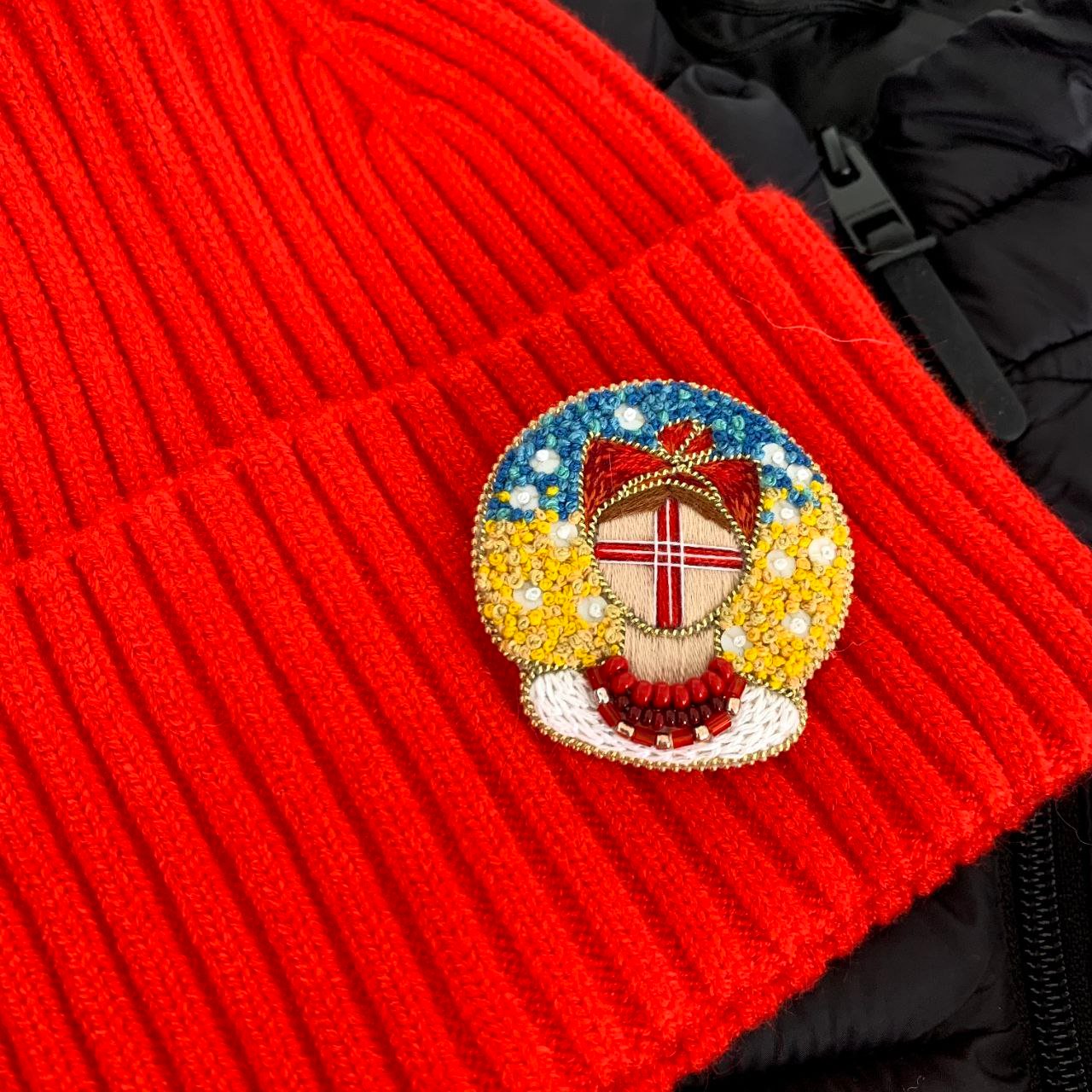
Роздільник
Nowadays, in addition to Ukraine, Natalya's Berehynia is in Poland, Ireland, Spain, Germany, and Canada — countries where Ukrainian women are escaping from the war.
"Many women and girls order a brooch with a house. This is how they show their longing for the home, which may have been already destroyed," Natalya says.
Now the craftswoman has moved to Romania with her family. She is thinking of looking for an assistant among the Ukrainian women there, who will be able to help with the creation of Berehynia. This way, they will be made much faster: girls will not have to wait for several months until their decoration is ready.
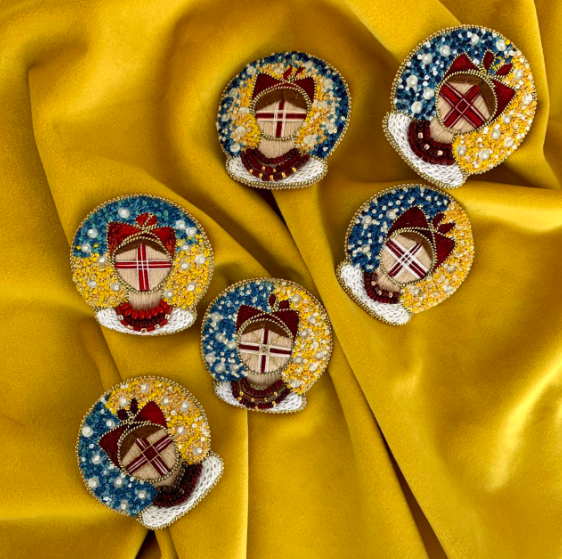
A small shop next to other shops in Lviv. There will be a small workshop inside, where Berehynia will be born under the guidance of Natalya Budyonnya. This is her dream, which was so strongly supported by her husband, Dmytro.
"I have already taken several steps towards my dream. Something used to stop me before. I was afraid of responsibility; I had no idea how to hire people who would work for me. But now I'm in such a state that I'm not afraid of anything anymore."
Natalya's husband, Dmytro Sergeyev, was posthumously awarded the Order "For Courage" of the 3rd degree.
Newsletter
Digest of the most interesting news: just about the main thing




